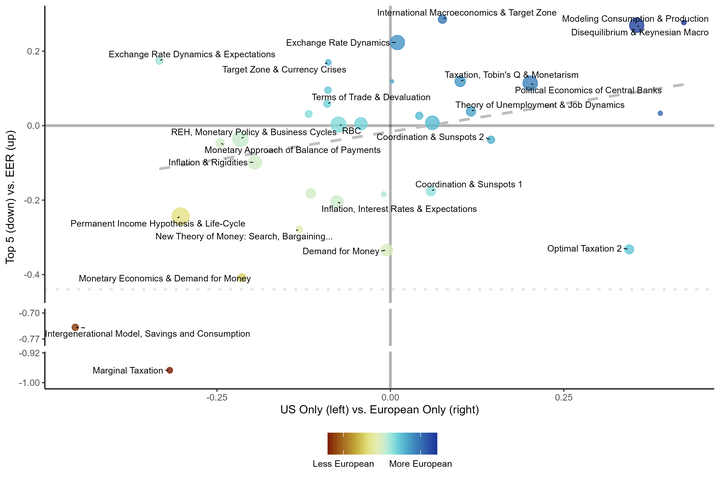An Independent European Macroeconomics? A History of European Macroeconomics through the Lens of the European Economic Review

Résumé
Economics in Europe has become more international since the 1970s. To a certain extent, this internationalisation is also an ‘Americanisation’ as many European economists have adopted the standards and approaches of US economics. This prompts an important question: amidst this convergence, are there any fields that have managed to retain a distinctively European character? In this article, we use topic modelling and bibliometric coupling to identify European specialties between 1969 and 2002. We focus on macroeconomic articles published in the European Economic Review and compare their bibliographic references and textual content to what has been published in the top 5 journals. Despite economics internationalization since the 1970s, European macroeconomics displayed distinct characteristics across two distinct periods. In the late 1970s and early 1980s, European macroeconomists maintained a certain distance from US debates centred around rational expectations and new classical economics. However, they embraced the concept of microfoundations through the lens of disequilibrium theory, fostering transnational collaborations and offering a unique framework for addressing various macroeconomic issues. Nevertheless, both the prominence of new classical economics in the US and the decline of the disequilibrium approach after the mid-1980s, European macroeconomics shifted towards closer alignment with US approaches. In the 1990s, Political economy, inspired by pioneering US contributions like Kydland and Prescott (1977) and Barro and Gordon (1983a,b), emerged in the 1990s as a new framework offering a common language for many European macroeconomists. However, specific European challenges like high unemployment rates and European integration continued to drive research in distinctive directions.